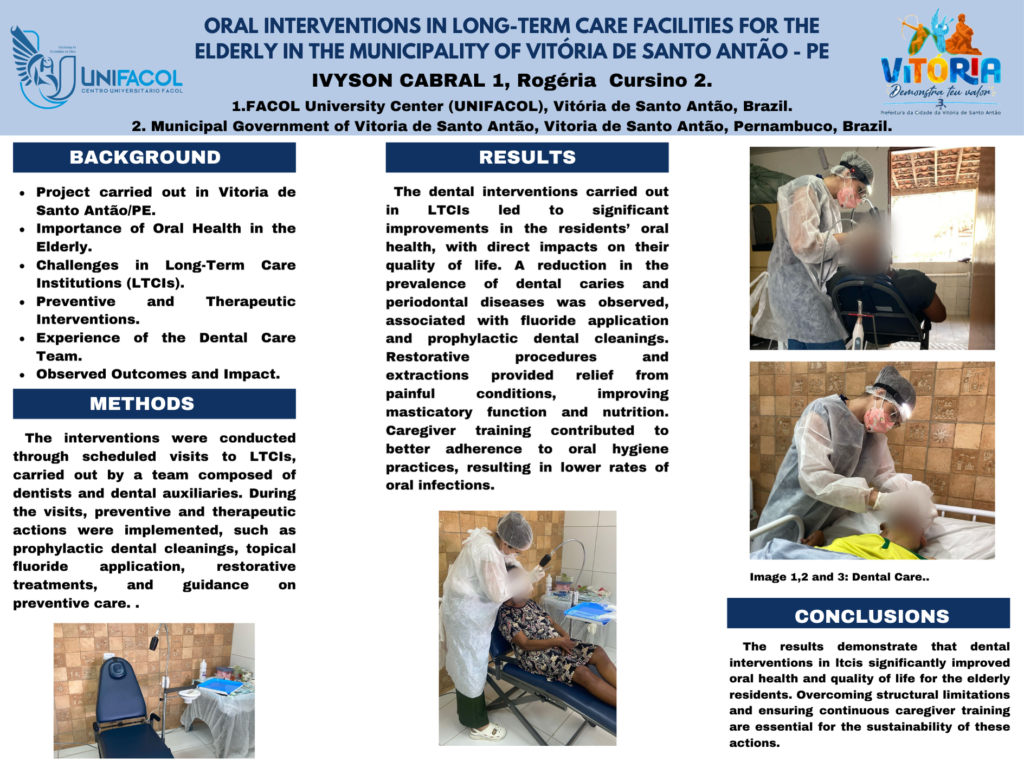Ivyson Cabral
Brazil
ORAL INTERVENTIONS IN LONG-TERM CARE FACILITIES FOR THE ELDERLY IN THE MUNICIPALITY OF VITÓRIA DE SANTO ANTÃO – PE
Ivyson Guilherme da Silva Cabral1, Rogéria Sandra Tenório Ferro Cursino2
1FACOL University Center (UNIFACOL), Vitoria de Santo Antão, Pernambuco, Brazil;
2Municipal Government of Vitoria de Santo Antão, Vitoria de Santo Antão, Pernambuco, Brazil.
Abstract
Background
Oral health is a critical determinant of quality of life, especially among elderly residents in Long-Term Care Institutions (LTCIs). The aging population is associated with a higher prevalence of oral conditions, which directly impact mastication, swallowing, communication, and overall well-being. In this context, the implementation of preventive and therapeutic dental interventions is crucial. This study aims to report the experience of a dental care team in LTCIs, highlighting the therapeutic strategies employed, challenges encountered, and observed outcomes in improving oral health and quality of life of institutionalized elderly individuals.
Methods
The interventions were conducted through scheduled visits to LTCIs, carried out by a team composed of dentists and dental auxiliaries. During the visits, preventive and therapeutic actions were implemented, such as prophylactic dental cleanings, topical fluoride application, restorative treatments, and guidance on preventive care. Additionally, educational activities focused on caregiver training were developed to ensure continuity of oral hygiene practices. The adopted approach integrated clinical actions with educational interventions, aiming to promote oral health and improve the quality of life of the elderly residents.
Results
The dental interventions carried out in LTCIs led to significant improvements in the residents oral health, with direct impacts on their quality of life. A reduction in the prevalence of dental caries and periodontal diseases was observed, associated with fluoride application and prophylactic dental cleanings. Restorative procedures and extractions provided relief from painful conditions, improving masticatory function and nutrition. Caregiver training contributed to better adherence to oral hygiene practices, resulting in lower rates of oral infections.
Conclusions
The results demonstrate that dental interventions in ltcis significantly improved oral health and quality of life for the elderly residents. Overcoming structural limitations and ensuring continuous caregiver training are essential for the sustainability of these actions. The Brazilian Unified Health System (SUS) should strengthen public oral health policies, ensuring universal and equitable access to dental care to promote healthy aging and enhance the quality of life for the elderly population.


Leave A Comment